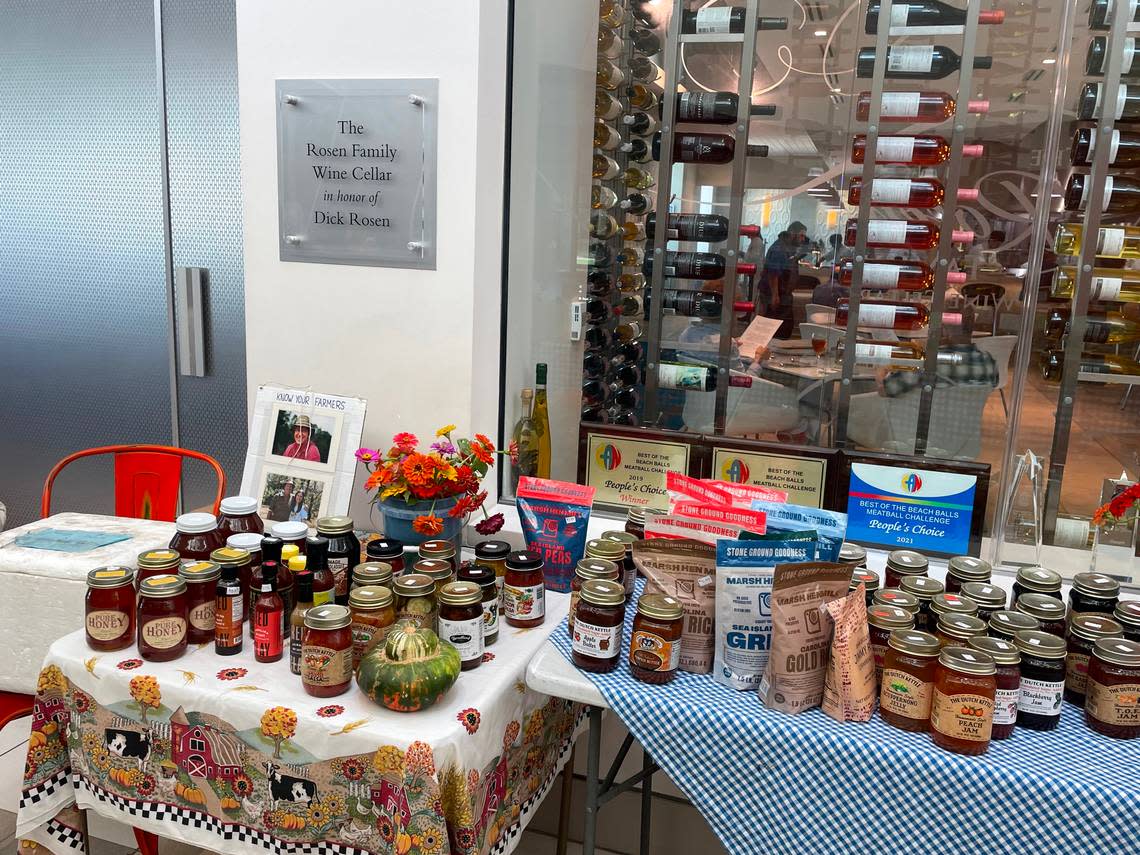Why this hidden Myrtle Beach farmer’s market might offer the most truly local food around
The best farmer’s market in the Grand Strand might be the one that defies a cardinal rule of farmer’s markets — selling outdoors.
The International Culinary Institute’s farmer’s market operates inside of the school’s building, but it offers something that not every farmer’s market does.
Everything sold by its vendors was grown or produced locally — guaranteed.
“There’s a lot of people at farmer’s markets who don’t farm. They buy vegetables at distribution places and then go sell them,” International Culinary Institute Director Joe Bonaparte said. “I learned that many, many, many years ago, and (now) I’m kind of like a hyper-local sourcing guy.”
His concerns about market products that aren’t locally sourced come from issues like animal welfare but also the sustainability of mega-farms and their harmful impacts on the environment.
The Culinary Institute’s farmer’s market has about half-a-dozen vendors. One of them, Indigo Farms, not only sells produce at the market but also works with the school for its summertime “farm-to-table” restaurant classes.
That class is the first restaurant class for second-year students, and each week they go to Indigo Farms, pick out the food they want to use and then head back to school to plan out a multi-course for customers.
Indigo Farms owner Sarah Bellamy said she appreciates that Bonaparte runs a market exclusively for growers — people who can guarantee the food was grown by themselves or another farm locally.
“We don’t grow everything we sell, but we try to grow as much as we can and substitute as many local places as we can and label what’s ours,” said Bellamy, whose farm is based in Calabash, North Carolina. “So people know when they’re buying our products and when these (other) products are coming from somewhere else.”
Bellamy travels around to lots of farmer’s markets in the region, but being part of a “growers market” is particularly special for the way it highlights the work farmers like herself put in.
“Being a farmer is hard work,” she said. “Being a grower is hard work. It’s not just buying produce and reselling. It’s a tough business to be in.”
The market sells more than just produce. There are also stands for locally-produced beef and eggs, as well as jams and honey.

One seller, Cindy Howell, makes soap using goat milk from her dairy farm.
“I was one of the originals (sellers), and we just kept coming,” said Howell, who runs Worley Lane Farms in Nichols. The commitment, just once a week, as well as the time, during the day, made it easy to be part of the market for the last four years.
Howell said she’s been lucky to have a strong customer base that has followed her to the Culinary Institute from the other markets she used to post up at in the region. She also benefits from having somewhat of an automatic customer base thanks to the student-run restaurant, which is booked up almost every day that it’s open.
“I think it’s important to let people know what their choices are,” she said. At a farmer’s market, “They get to talk to the farmers. They become friends with the farmers. I think it’s important to them, rather than going to the grocery store and picking up a bar of soap or having a steak out of the meat case or grabbing butter or milk. I think it means more to know where you food comes from.”
The soap she sells is the latest gig in her evolution of farming. Previously, she used to make cheese — which she sold to the school — and run the dairy farm at full capacity, but she retired from that work a few years ago. However, that life didn’t just completely go away for her. She gave all of her cheese-making equipment to the school, so students could learn how to make it themselves.
“We’re family, and that’s a big part of” why she loves the farmer’s market, Howell said. There’s a “camaraderie” to it.
Bellamy and Howell exemplify everything that Bonaparte hopes for with the farmer’s market. Not only does it further his goals of making locally-grown food more accessible, but it’s also a way to connect his students to a more sustainable side of the food-service industry and help local farmers at the same time.
“The farmer’s market has really made Thursdays over here very community-oriented,” Bonaparte said.
The International Culinary Institute’s farmer’s market is open Thursdays from noon to 4 p.m. It is located inside the institute’s building — 920 Crabtree Lane, Myrtle Beach.






